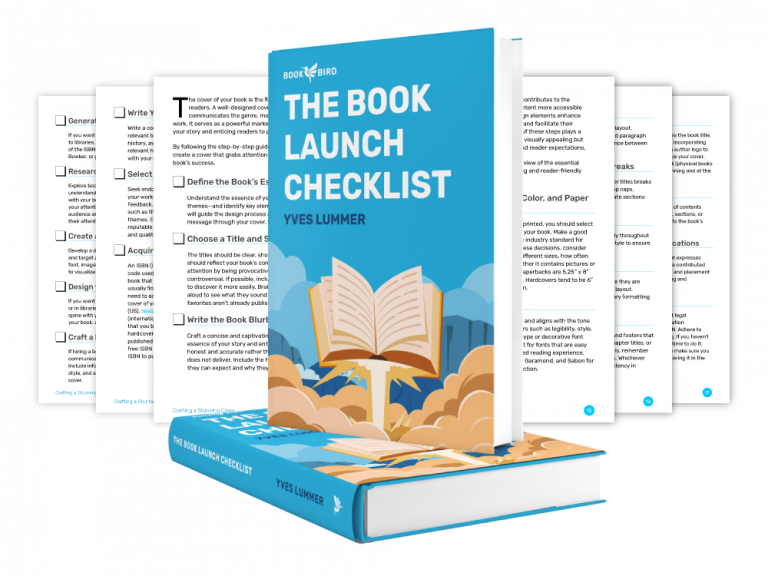Have you ever found yourself lost in the pages of someone’s life story, marveling at their journey, and wondered, “How did they capture this essence so vividly?” Whether it’s the inspiring tale of a visionary like Steve Jobs, the intimate diary of Anne Frank, or the raw honesty of Michelle Obama’s “Becoming,” the allure of personal narratives is undeniable. But here’s a question: do you know the difference between a biography, an autobiography, and a memoir? These genres, while similar, have distinct flavors and purposes. In this journey through words, let’s unravel these threads and discover the unique tapestry each one weaves.
Biography vs. Autobiography vs. Memoir
In the realm of personal narratives, biographies, autobiographies, and memoirs are often mentioned in the same breath. Yet, each genre has its unique flavor and purpose. Understanding the differences between them is like distinguishing between different genres of music – each tells a story in its own unique way.
The Distinctive Flavors
Biographies are akin to a well-researched documentary. They are written by someone other than the subject and provide an external perspective on a person’s life. Biographers are like artists who paint a portrait of a person using the palette of history, interviews, and other sources.
Autobiographies, on the other hand, are self-written accounts. They are the self-portraits of literature, offering an internal perspective. Autobiographies often cover the author’s entire life, providing a detailed chronology of events and experiences from the person who lived them.
Memoirs are more like snapshots or a series of vignettes from the author’s life. They focus on specific experiences, periods, or events, often with a particular theme or emotional undercurrent. Memoirs are less about the chronological details and more about the emotional journey and personal insights.
The Art of Storytelling
While all three genres share the common thread of personal narrative, the way they tell their stories differs significantly. Biographies often have a more formal and comprehensive approach, while autobiographies and memoirs tend to be more personal and introspective. Autobiographies give you a panoramic view of a person’s life, while memoirs zoom in on particular aspects, offering a more detailed and intimate perspective.
The Purpose and Appeal
Each of these genres serves a different purpose and appeals to readers in different ways. Biographies satisfy our curiosity about the lives of others, especially prominent figures, and help us understand the broader historical and cultural context. Autobiographies allow us to connect directly with the author’s experiences and perspectives. Memoirs, with their focused and thematic approach, often resonate on a deeper emotional level, offering insights into specific life experiences and universal truths.
Now, let’s put these differences into perspective with a comparison table:
Characteristic | Biography | Autobiography | Memoir |
|---|---|---|---|
Point of View | Third-person (someone else writing about the subject) | First-person (the author writing about themselves) | First-person (focused on specific experiences) |
Scope & Timeline | Often covers the entire life span | Usually covers the entire life span | Focuses on specific events, periods, or themes |
Authorship | Written by someone other than the subject | Written by the subject themselves | Written by the subject, focusing on personal experiences |
Emphasis | On factual life events and historical context | On the author’s life story and experiences | On emotional truth and personal insights |
Narrative Style | More formal and comprehensive | Personal and chronological | Personal, reflective, and thematic |
Purpose | To inform and educate about a person’s life and times | To share the author’s life story and perspectives | To explore specific themes and emotional journeys |
Literary Genre Quiz (Easy)

What is a Biography?

In the tapestry of literature, a biography stands out as a vibrant thread, weaving together the intricate details of a person’s life. But what exactly makes a biography? It’s not just a chronological account of events; it’s a journey into the heart and soul of another human being, crafted with the careful hands of an author who is not the subject themselves.
The Essence of Biography
A biography is a detailed description or account of someone’s life, yet it involves more than just the basic facts like education, work, relationships, and death. It portrays a comprehensive picture of a person’s experiences and the times in which they lived. Think of it as a portrait painting; while the basic outlines are drawn from the subject’s life, the colors and textures are provided by the author’s insights into their character, motivations, and the impact they had on the world around them.
The Author’s Perspective
One of the most intriguing aspects of a biography is the author’s perspective. Unlike autobiographies, biographies are written by someone other than the subject. This external viewpoint allows for a more objective portrayal of the subject’s life. The biographer’s task is akin to that of a detective – piecing together the story of a life from letters, journals, interviews, and other sources. They must tread the fine line between fact and interpretation, ensuring that their narrative is both accurate and engaging.
The Journey Through Time
Biographies take readers on a journey through time, offering a glimpse into different eras and the people who shaped them. They provide context to the subject’s actions and decisions, helping readers understand the historical and cultural circumstances that influenced their life. This journey is not just about the destination – the events of the subject’s life – but also about the path they took, the obstacles they faced, and the legacy they left behind.
The Universal Appeal
While biographies are about individual lives, their appeal is universal. They tell stories of human struggle and achievement, of overcoming odds, and of making a mark on the world. Biographies inspire, educate, and entertain, bridging the gap between the past and the present. They remind us that history is not just about events and dates, but about real people who lived and breathed, loved and lost, and in their own way, changed the world.
3 Biography Examples

Diving into the world of biographies, we encounter stories that are as diverse as they are profound. These narratives not only chronicle the lives of remarkable individuals but also offer us a window into their souls. Let’s explore three exemplary biographies that stand as testaments to the power of well-told life stories.
“Steve Jobs” by Walter Isaacson
“Steve Jobs” by Walter Isaacson is a masterful portrayal of the iconic co-founder of Apple Inc. Isaacson, renowned for his in-depth research and engaging storytelling, paints a vivid picture of Jobs’ complex personality and groundbreaking innovations. This biography delves into Jobs’ intense drive, creative genius, and the path he blazed in the tech world. It’s a compelling read that takes you behind the scenes of his famous product launches and into the depths of his personal and professional relationships. Isaacson’s narrative is a rich tapestry that weaves together the triumphs and tribulations of a man who changed how we interact with technology.
“Marie Curie: A Biography” by Marilyn Bailey Ogilvie
In “Marie Curie: A Biography,” Marilyn Bailey Ogilvie offers an intimate look into the life of the trailblazing scientist who broke barriers in a male-dominated field. This biography shines a light on Curie’s relentless pursuit of knowledge, her groundbreaking discoveries in radioactivity, and her monumental contributions to science, which earned her two Nobel Prizes. Ogilvie’s portrayal is not just about Curie’s scientific achievements but also about her personal struggles, resilience, and the legacy she left for future generations of scientists, especially women. It’s a story of determination and brilliance, inspiring readers to believe in the power of perseverance.
“Alexander Hamilton” by Ron Chernow
Ron Chernow’s “Alexander Hamilton” is a riveting account of one of America’s most influential founding fathers. This biography takes you on a journey through Hamilton’s tumultuous life, from his humble beginnings in the Caribbean to his pivotal role in shaping the United States’ financial system. Chernow’s meticulous research and eloquent writing bring to life Hamilton’s political genius, his role in the creation of the U.S. Constitution, and his infamous rivalry with Aaron Burr. This book is more than a biography; it’s a vibrant portrait of a man whose legacy continues to resonate in modern American politics.
What is an Autobiography?

Have you ever wished you could step directly into someone’s shoes, to see the world through their eyes and understand their innermost thoughts and feelings? This is the essence of an autobiography. Unlike biographies, written by observers, an autobiography is a self-penned narrative, offering a first-person account of the author’s life. It’s as if the subject has invited you into their living room for a candid, personal conversation about their life’s journey.
The Personal Lens of Autobiography
In an autobiography, the author takes you by the hand and guides you through the corridors of their past. You get to experience their childhood memories, their triumphs and failures, their joys and sorrows, all narrated with the intimate knowledge that only they can provide. This genre is not just about recounting events; it’s about sharing the emotional journey that accompanied those events. It’s a deep dive into the author’s psyche, revealing their motivations, challenges, and the lessons they’ve learned along the way.
The Authentic Voice
What sets autobiographies apart is their authentic voice. The narrative is often conversational, filled with personal anecdotes and reflections that give you a sense of who the author really is. It’s like listening to a friend recount their life story, complete with insights and introspections that only they could offer. This authenticity makes autobiographies uniquely compelling, as they provide a direct window into the author’s soul.
The Evolution of Self
Autobiographies often focus on the evolution of the author’s identity and perspective. They chronicle not just the external events of the author’s life but also their internal growth and development. Through the pages, you witness the transformation of the individual, understanding how each experience has shaped them into the person they are today.
The Universal in the Personal
While autobiographies are deeply personal, they often resonate with readers on a universal level. The struggles and triumphs, the dreams and disappointments, the moments of clarity and confusion – these are experiences that many of us share. By sharing their stories, authors of autobiographies connect with readers, offering insights and inspiration that transcend their individual experiences.
3 Autobiography Examples

In the realm of autobiographies, each book is a window into a life, offering unfiltered access to the author’s world. These narratives are not just accounts of events; they are personal testimonies of resilience, courage, and the human spirit. Let’s delve into three powerful autobiographies that have left an indelible mark on the hearts and minds of readers worldwide.
“Long Walk to Freedom” by Nelson Mandela
“Long Walk to Freedom” is not just an autobiography; it’s a testament to the unyielding spirit of one of the most iconic figures in the fight for equality, Nelson Mandela. In this deeply moving narrative, Mandela recounts his journey from a young village boy to a leader in the African National Congress, his enduring 27 years in prison, and his pivotal role in dismantling apartheid in South Africa. What makes this autobiography so compelling is Mandela’s ability to blend the political with the personal. His story is not just about the struggle for freedom but also about the power of hope, forgiveness, and the unbreakable will to achieve justice. Mandela’s voice resonates with dignity and wisdom, offering a profound lesson in leadership and humanity.
“The Diary of a Young Girl” by Anne Frank
Anne Frank’s “The Diary of a Young Girl” is a poignant and heart-wrenching autobiography that captures the essence of human resilience under the most harrowing circumstances. Written while hiding from the Nazis during World War II, this diary is a raw, unfiltered account of a young girl’s life and thoughts as she confronts the horrors of war and the threat of persecution. Anne’s diary is more than a historical document; it’s a journey into the soul of a bright, insightful, and incredibly brave girl facing unimaginable adversity. Her observations, dreams, and fears, penned with remarkable clarity and wisdom, continue to inspire and move readers around the world, serving as a powerful reminder of the horrors of war and the enduring strength of the human spirit.
“The Story of My Life” by Helen Keller
“The Story of My Life” by Helen Keller is an extraordinary autobiography that chronicles the life of a woman who, despite being deaf and blind from a young age, became one of the most inspirational figures of the 20th century. Keller’s narrative is a stunning testament to the power of determination and the human capacity to overcome seemingly insurmountable obstacles. Through her words, readers experience her journey of learning to communicate, her educational triumphs, and her work as an advocate for people with disabilities. Keller’s story is not just about the challenges of her physical condition but also about her intellectual and emotional growth. Her autobiography is a beacon of hope and a celebration of the indomitable human spirit, inspiring readers to believe in the potential within themselves, regardless of the challenges they face.
What is a Memoir?

Step into the world of memoirs, and you’re stepping into a garden of personal experiences, each flower representing a specific time, emotion, or event in someone’s life. Unlike autobiographies, which often span the entirety of a person’s life, memoirs focus on a particular aspect, theme, or period. They’re like a spotlight, illuminating a specific part of the garden, revealing its colors and textures in vivid detail.
The Intimacy of Memoirs
Memoirs are deeply personal narratives that offer a window into the author’s soul. They’re not just about what happened, but how what happened affected the author. It’s this introspective and reflective nature that sets memoirs apart. They delve into the emotional journey, exploring the author’s feelings, reactions, and insights. A memoir is like a conversation with an old friend, where stories and reflections are shared with honesty and vulnerability.
Crafting a Narrative
What makes memoirs so captivating is their narrative style. They often read like a novel, with a strong emphasis on storytelling. Authors of memoirs use literary techniques to weave their experiences into a narrative that’s not just informative but also emotionally engaging. They transport readers into their world, allowing them to see, feel, and experience life from the author’s perspective.
The Universal in the Personal
Memoirs may be personal, but their themes often resonate on a universal level. They touch on experiences and emotions that many of us can relate to, such as love, loss, triumph, and failure. This relatability is what draws readers into the memoir; it’s like finding parts of your own story in someone else’s narrative. Memoirs remind us that, despite our diverse life paths, our emotional experiences are often shared.
A Journey of Self-Discovery
Writing a memoir is often a journey of self-discovery for the author. It’s a process of reflecting on their life, making sense of their experiences, and understanding how those experiences have shaped them. For the reader, it’s an opportunity to learn from someone else’s life lessons, to gain insights that can be applied to their own journey.
3 Memoir Examples

Memoirs, with their intimate and focused narratives, offer a unique lens into the authors’ lives, highlighting specific experiences and the profound lessons they impart. Each memoir is a personal journey, a deep dive into moments that have shaped the author’s life. Let’s explore three captivating memoirs that have not only enthralled readers but also provided insights into different facets of the human experience.
“Becoming” by Michelle Obama
In “Becoming,” Michelle Obama invites us into her world, sharing the experiences that have shaped her from her childhood on the South Side of Chicago to her years as an executive balancing the demands of motherhood and work, to her time spent at the world’s most famous address. This memoir is a work of deep reflection and mesmerizing storytelling. Michelle Obama describes her triumphs and disappointments, both public and private, telling her full story as she has lived it – in her own words and on her own terms. Warm, wise, and revelatory, “Becoming” is an intimately powerful read about a woman who has steadily defied expectations and whose story inspires us to do the same.
“Educated” by Tara Westover
Tara Westover’s “Educated” is a heart-wrenching memoir of self-invention and a testament to the resilience of the human spirit. Born to survivalists in the mountains of Idaho, Westover was seventeen the first time she set foot in a classroom. Her quest for knowledge transformed her, taking her over oceans and across continents, to Harvard and to Cambridge. Despite her isolated upbringing, her pursuit of education opened new worlds and gave her a new voice. “Educated” is an account of the struggle for self-invention, a tale of fierce family loyalty, and the grief that comes from severing one’s closest ties. It’s a poignant reminder of the power of education to change one’s life.
“The Glass Castle” by Jeannette Walls
“The Glass Castle” by Jeannette Walls is a remarkable memoir of resilience and redemption, and a revelatory look into a family at once deeply dysfunctional and uniquely vibrant. Walls grew up with parents whose ideals and stubborn nonconformity were both their curse and their salvation. Her story focuses on her unconventional upbringing and how she and her siblings had to fend for themselves while their parents followed their whims. This memoir is a testament to the unbreakable bond of family and a celebration of the indomitable spirit to overcome insurmountable odds. Walls’ storytelling is straightforward and unadorned, yet the narrative she weaves is deeply moving and profoundly inspiring.
Literary Genre Quiz (Hard)

Frequently Asked Questions
In the fascinating world of personal narratives, questions often arise about biographies, autobiographies, and memoirs. Let’s dive into some of the most frequently asked questions to shed light on these intriguing genres.
Is a Biography a Life Story?
Absolutely! A biography is indeed a life story, but it’s told by someone other than the subject. It’s an account that covers the significant events and experiences of a person’s life, often providing a comprehensive view of their journey.
Can Anyone Write a Biography?
Yes, anyone can write a biography, but it requires thorough research and a deep understanding of the subject. Biographers often spend years gathering information through interviews, archives, and other sources to paint an accurate and compelling picture of the person’s life.
Can a Biography Be Fictionalized?
While biographies are primarily factual, some authors use creative nonfiction techniques to enhance the narrative. However, the core of a biography should always be rooted in factual, well-researched information. Fictionalizing real events or characteristics of the person would stray into the realm of historical fiction.
How Do Authors Research for Writing a Biography?
Researching for a biography involves diving into various sources like letters, diaries, interviews, historical records, and other relevant documents. Biographers often interview people who knew the subject personally and gather as much firsthand information as possible to ensure accuracy and depth in their portrayal.
How Do You Start an Autobiography?
Starting an autobiography usually involves introspection. Authors often begin by outlining the key events in their life, reflecting on their experiences, and deciding on the overall theme or message they want to convey. It’s about finding the unique angle of your life story that will resonate with readers.
Are Autobiographies Always Written in the First Person?
Yes, autobiographies are typically written in the first person since they are personal accounts of the author’s life. Writing in the first person helps convey a sense of intimacy and immediacy, allowing readers to see the world through the author’s eyes.
How Do Authors Ensure Accuracy in Their Autobiographies?
Authors ensure accuracy in their autobiographies by relying on their memories, personal records, diaries, and sometimes by corroborating events with others. They strive to recall events and experiences as truthfully as possible, although it’s understood that personal perspectives may color these recollections.
Is Memoir a Fiction?
No, a memoir is not fiction. It’s a true account of specific experiences in the author’s life. While memoirs are subjective and focus on personal perceptions and emotions, they are grounded in the author’s real experiences.
Who is a Memoir Written by?
A memoir is written by the person who experienced the events or periods being described. It’s a personal narrative that delves into the author’s memories, emotions, and insights about particular aspects of their life.
What Are Some Common Themes in Memoirs?
Common themes in memoirs include personal growth, overcoming adversity, relationships, identity, and resilience. Memoirs often explore these themes through the lens of the author’s unique experiences and insights.
How Do Authors Decide What to Include in Their Memoirs?
Authors decide what to include in their memoirs based on the overall theme or focus of their narrative. They select events and experiences that are significant to the story they want to tell, often those that have had a profound impact on their personal journey or that illustrate a particular aspect of their life.






